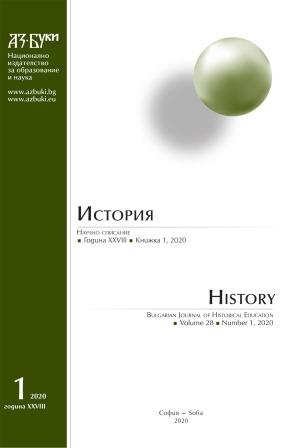
We kindly inform you that, as long as the subject affiliation of our 300.000+ articles is in progress, you might get unsufficient or no results on your third level or second level search. In this case, please broaden your search criteria.


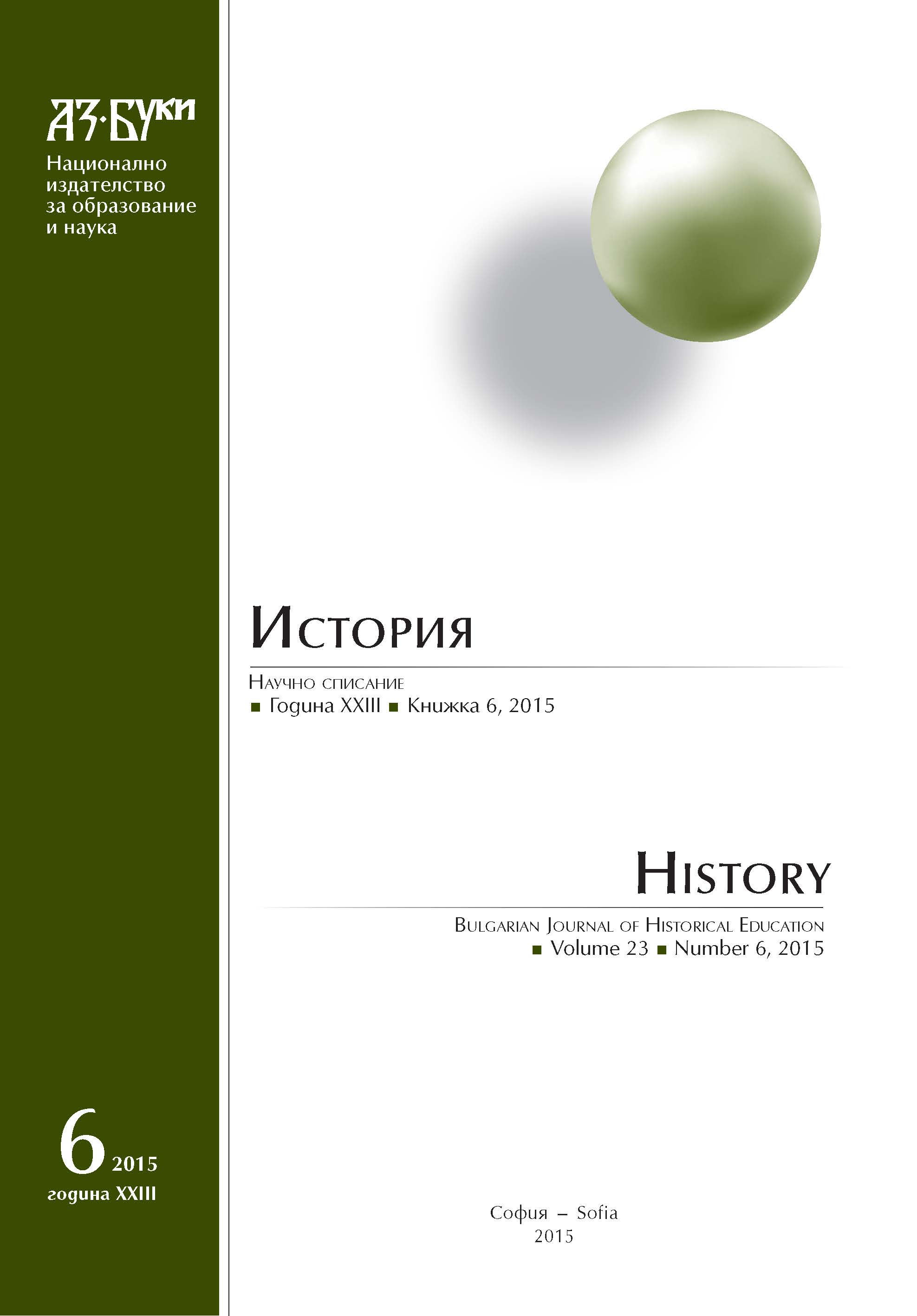
The article reveals some moments of the life of pop Gruyo Trenchov -an ardent revolutionary who participated in The April uprising of 1876. He is author of a poem, that reflected his memories of the heroic epic.
More...

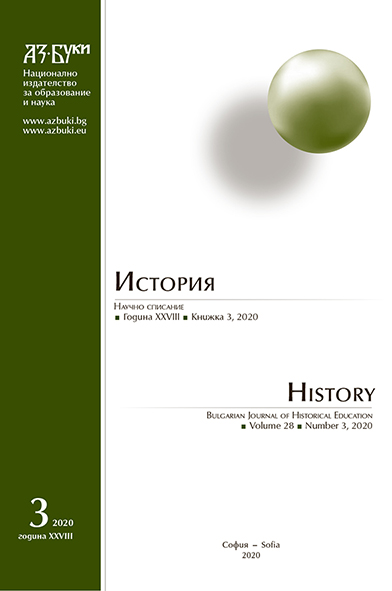
Understanding the socio-cultural significance of the experience of the past in solving the problems of the present causes a growing interest in historical education and focuses on finding effective methodological approaches to translating knowledge about the past through education. One such approach is an intersubjective approach. The paper deals with the humanistic potential of an intersubjective approach to understanding the Other and fostering the ability to compromise through historical education. A well-considered attitude towards the Other, an inner interest and understanding of the significance of the other presence implies that in the social deprivation of hostility, the inadmissibility of domination and oppression in my Self of the world of the Other Being will be deprived. Both are understood as correlates of intersubjective constitution of reality. In dialogue interaction Otherness is not subordinated, it is assigned to my Self, it remains an “insoluble” individuality. Content analysis of history books of Ukraine has shown that they are conceptually sustained, lacking stereotyped and impartial assessments of the racial, ethnic, cultural nature of the Other. However, ambiguous historical events involving different peoples and states are not alternatively presented. The narrative in the textbook undoubtedly should be the Ukrainian ethnic group as the core of national history. At the same time, using the anthropological and territorial principles as the core of the story, the textbook should strive for Ukraine to be perceived as space where other ethnic communities whose existence is an integral part of Ukrainian history reside alongside Ukrainians. Relevant in overcoming the false image of historical education is the development of the ability to think critically about historical facts, to give them their own judgment. Understanding of the historical process from the point of view of an intersubjective approach will contribute to the formation of a person’s tendency to cultural tolerance, tolerance and dialogue with the Other, the realization that the Other is also entitled to a mistake or his own ratio, the ability to see the world in all its diversity and uniqueness.
More...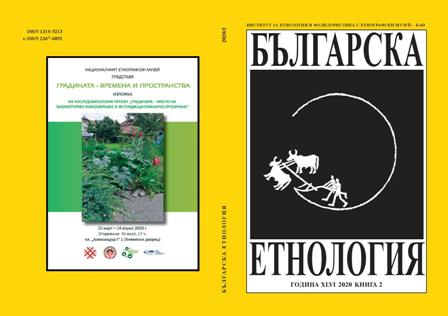
The marital partners in mixed families engage in a form of cultural transition as a result of negotiating the differences between them. This leads to the development of a new cultural model which is influenced by or even combines both partners’heritages. An important aspect of this intercultural interaction is the festivities, more particularly the manner of their functioning, especially within bi-religious families. Hence, the festive events appear to form an essential and very visible part of each partner's own cultural heritage, which the couple more or less incorporate into their mixed family’s life. This article focuses on several ethnocultural (including religious), as well as social aspects of the festivities of couples composed by Bulgarians and foreigners of the Middle East and North African countries. The text considers the place of the festivities in the lifestyle of the partners and their children, as well as the agents’attitudes, personal motivations and involvement in certain activities.
More...
This paper draws on the author’s ethnographic research with 11 – 15 years old adolescents conducted in a “prioriy” middle school in Normandy, France (2014 – 2017) and aims to explore these immigrant students’ experiences of acculturation, sociocultural adaptation and identity formation. In particular, I present the case study of a Moroccan boy in an attempt to uncover more profound aspects of these phenomena. I use the theoretical framework of Berry et al. (2006) regarding strategies for acculturation and identity processes in adolescence in order to analyse data gathered through ethnographic methods. Then, I illustrate how methodological pluralism can produce a nuanced picture and allow for alternative interpretations. In addition, followingPollock and Van Reken’s example of a third-culture kid, I use the concept of a third culture adolescent (Pollock and Van Reken 1999) to demonstrate how a migrant student with a diffuse profile, that defines him as marginal and confused, viewed through an ethnographic lens, can be thought of as someone creating “third culture”.
More...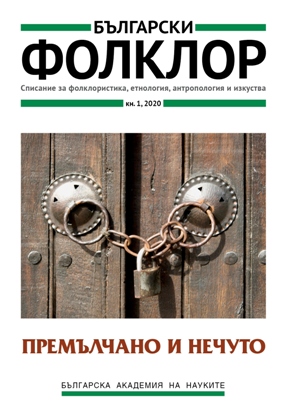
This article aims to provide unknown information about the traditional culture of the Tatars from Northeastern Bulgaria. This ethnic community today is experiencing a process of active linguistic and cultural assimilation. The text analyses the two main cases. The first illustrates the role of the science and the work of researchers as an important tool against forgetting. The second provides the so-called аutosanction. In this example it means suppression and destruction of relics, which are valuable ethno-cultural characteristics of the community. The observations are the result of the analysis of publications in Hungarian ethnographic editions, of fieldwork in the region of Dobrich (Dobrich, Onogur, Yovkovo) and of archival work.
More...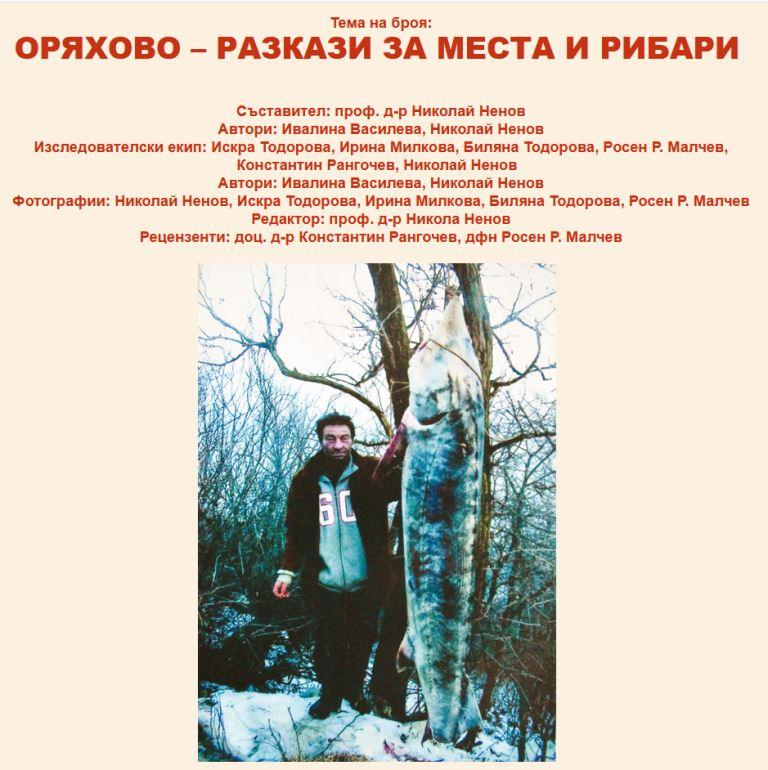
The study in Oryahovo is a contribution to the modern anthropological study of local cultures, communities and heritage along the Danube River. It aims to describe the cultural geography of the place, as well as the specifics of local fishing, the names of species of nets and gear, the names of boats, species of fish, the daily life of fishermen and the forms of celebration. The methodology of the historical-anthropological approach and the biographical approach is used. The authentic texts that are published are grouped in four parts – Everyday life, Environment, Fishing, Holidays. They create a collective biography, represented by the many voices of ordinary local fishermen. Fishermen's knowledge of the world around them is complex – their stories include swamps in Romania, the numerous islands on the Danube and the nuclear power plant, as well as specific places where the riverbed is clear and the nets do not get caught to rupture. Turning an individual into a fisherman is a way of life. And it is precisely the differences in this living – with devotion to the river and the local ecosystem, that make the fishermen of Oryahovo different from everyone else. We have registered many of their worldview, acquired habits, traditional practices and skills, oral knowledge – the amalgam which we define as cultural heritage. But for local fishermen, this knowledge has not yet been valorized.
More...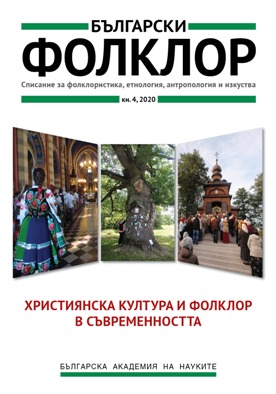
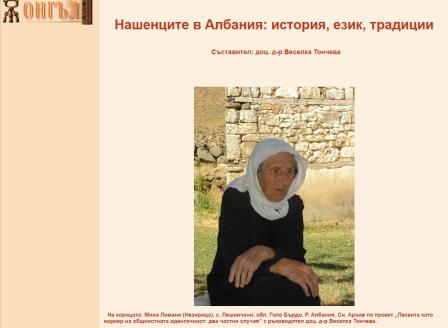
The text presents and analyzes documents and materials related to the Bulgarians from the Golloborda Region in Albania in the period 1918 – 1939, from the funds of the Directorate of Religious Affairs, Ministry of Foreign Affairs and Religions and the Bulgarian Embassy in Tirana. In these letters, reports and documents set out the problems of the Bulgarians in Albania in the period between the two World Wars, they contain detailed statistics, recommendations and guidelines to improve the state of our compatriots who remained on Albanian territory.
More...
The article discusses the conception of the importance of national self-determination as a criterion for belonging to a nationality. The typical case of spontaneous declarations of Bulgarian national identity is indicate in the Republic of Kosovo. The ancestral memory of aristocratic origin is expressed by specific local dialect.
More...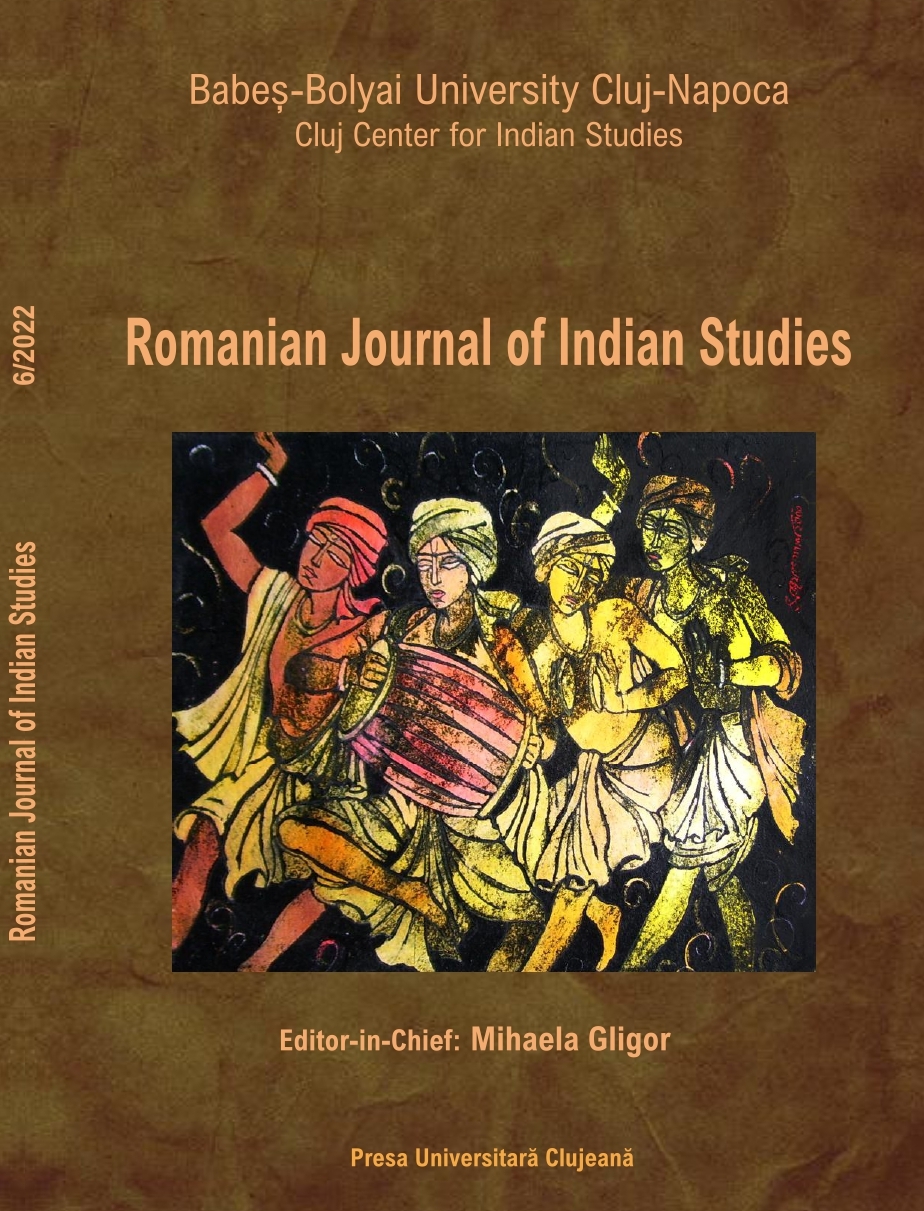
Kolkata’s cultural landscape can be defined by the existing foodscape. The heritage restaurants existing in the city are an amalgamation of the cultural diffusion between the different communities that reside in the city. In this paper, primarily, three food zones have been recognized, each specializing in a particular type of cuisine. The paper seeks to understand the development of the cuisines in relation to these food zones, how different communities have slowly exchanged ideas which have led to the creation of a new type of fusion cuisine, modified in accordance to suit local tastes and preferences. This acculturation process is constantly occurring and is reflected in the present day foodscape of the city.
More...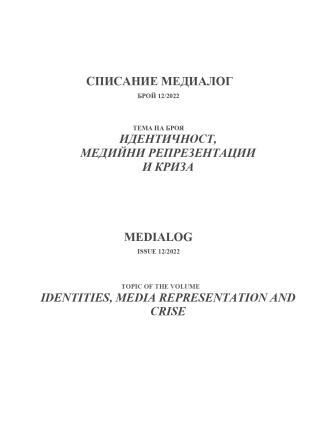
The text presents results of research carried out by students of European studies (Simon Weil graduation, academic year 2021/2022), centered on the image of Ukrainian refugees and the ways in which it is constructed in the Bulgarian media. The results of the study refer to the first two and a half months of the war in Ukraine. 35 online and Internet-based media were tracked. Basic aspects of media representation are summarized in concluding text
More...
Cet article prend pour objet la légitimation des constructions hiérarchiques dans deux entreprises des pays d’Europe de l’est. La première est une multinationale en Pologne, la seconde une ONG de démocratisation en Roumanie. Le travail en Pologne et la démocratisation en Roumanie sont les secteurs qui ont été les plus exposés au changement dans la période postcommuniste dans ces deux pays. Pour comprendre le sens que donnent les acteurs à leurs relations sociales dans ces champs sociaux, trois dimensions doivent être rapportés aux enjeux actuels : le rapport au passé communiste, l’articulation à l’Occident et à l’État qui se conjuguent dans les imaginaires collectifs.
More...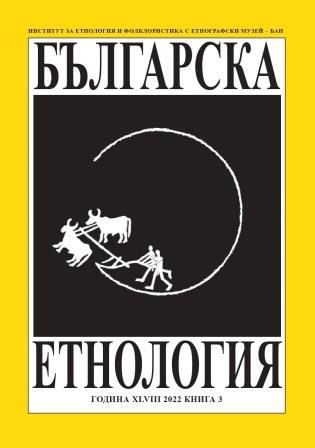
The present study focuses on the labour mobility and settlement of Bulgarian citizens in Siberia and the Urals in the period between 1980-2022. The Bulgarian community in the city of Surgut, Tyumen region, is cited as an example. The research is based on archival and field materials and was conducted in the period from September 2019 – September 2022. It is a part of the research project “Bulgarians in the Urals and Siberia in the 20th – 21st centuries: history, culture, identity”, financed by the “NationalScience Fund” under contract KP-06-Russia-2 – 27.09.2019, within the framework of the bilateral cooperation program Bulgaria – Russia (2018 – 2022).
More...
The present study once again directs the interest to the topic of deportations, or the so-called moving-away in the vernacular tongue, of Bulgarians from Bessarabia to the regions of the Urals and Siberia, and also in other remote parts of the USSR in the 1940s and 1950s, as a result of the policy of collectivization and the related repressions. The study was implemented in relation to a project of the Institute of Ethnology and Folklore Studies with the Ethnographic Museum – BAS, named“Bulgarians in the Urals and Siberia in the 20th – 21st centuries: history, culture, identity”, financed by the “National Science Fund” under contract KP-06-Russia-2 –27.09.2019, within the framework of the bilateral cooperation program Bulgaria –Russia (2018 - 2022) and the Russian Fund for Fundamental Research (Российскийфонд фондументальных иследование) – project Number 19-59-18003. The author of the study conducted field ethnographic research in the town of Tarutino, Odesa region, Ukraine, where in 1958-1959, in several waves, some of the 80 families fromCorten, Moldova– previously deported to Siberia in 1949, returned and settled. Along with the percentage of deported families, a special impression in the case under consideration is made by their compact settlement in several vicinities of the Altai krai, as well as their return and reestablishment in the same place altogether – in the present-day city of Tarutino, Odesa Region, Ukraine, in the nearby settlements ofPodgornoe, Berezino – all former German colonies, as well as in Corten itself. Thus, evacuation, emigration and life away from the place of birth, spent in an isolated, foreign ethnocultural and geographical environment, can be seen as a kind of ahistorical experiment regarding culture as a system of persistent and dynamic elements, of interrelationships and influences, as well as of stable, non-changing components.
More...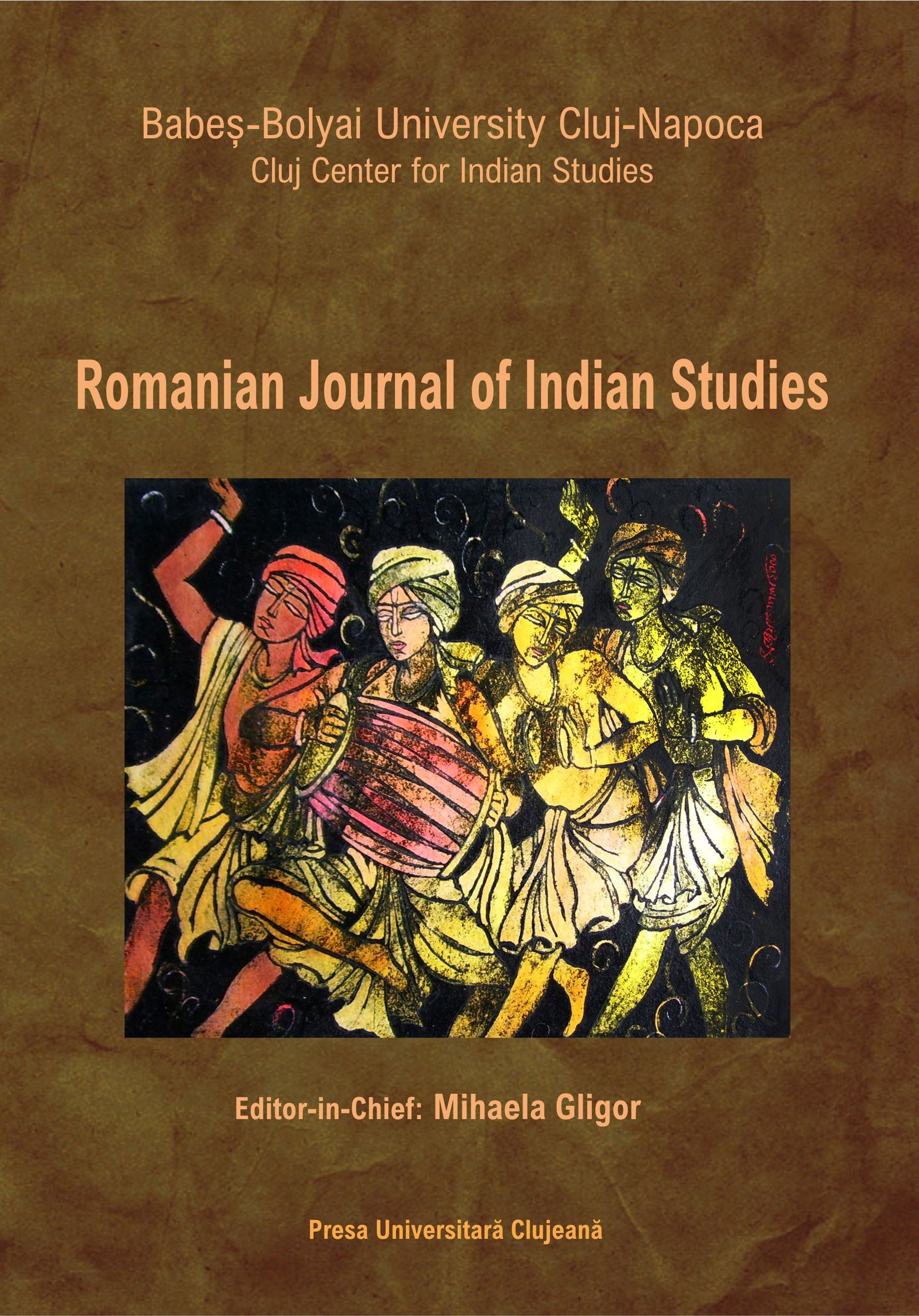
Review of: Cătălina-Ioana Pavel, Acolo unde se naște musonul. Un an în regatul zeului Parasurama, Cluj-Napoca: Editura Casa Cărții de Știință, 2023
More...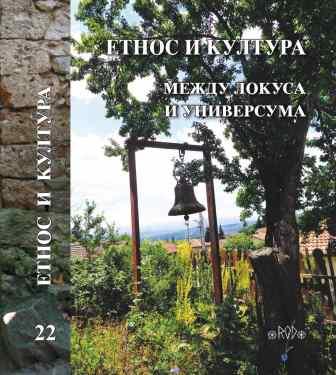
The current text continues the observations on the contemporary memorial practices, and more specifically – on the so-called “Denkmalarbeit” process. The idea of the “Contemporary Memorial Practices in Germany” series is based on the hypothesis for immanently inherent in German society guilt, represented in this particular case by means of numerous monuments of one of the oldest and highly organized communities in Germany – that of the miners. The topic of guilt, albeit indirectly, is present in the general complex of socio-cultural patterns associated with the image of miners as heroes, angels, upholders of the German economy and industry and, in this sense, saviours of society from economic dependence and ruin. Guilt regarding labour, hard work and the sudden, dramatic death forms a specific notion in the process of creating monuments – the miners carry their burden voluntarily (although their decision is predetermined by the social-economic force), sacrifice their lives – “fallen during/remain on their labour station” during “the faithful execution of their duty”, while society transforms the ordinary death into “a sacrifice” and preserve the memory for the executed public duty. The specifics of the “Denkmalarbeit” process, manifested not only through large number of monuments, but also through the search of new forms (memorial and contra-memorial) for overcoming public 210 guilt, multiplied in various aspects (Holocaust, witch and deserters’ trials) produces more and varying forms of memory, turns into a resource and a catalyst in the process of forming cultural heritage.
More...